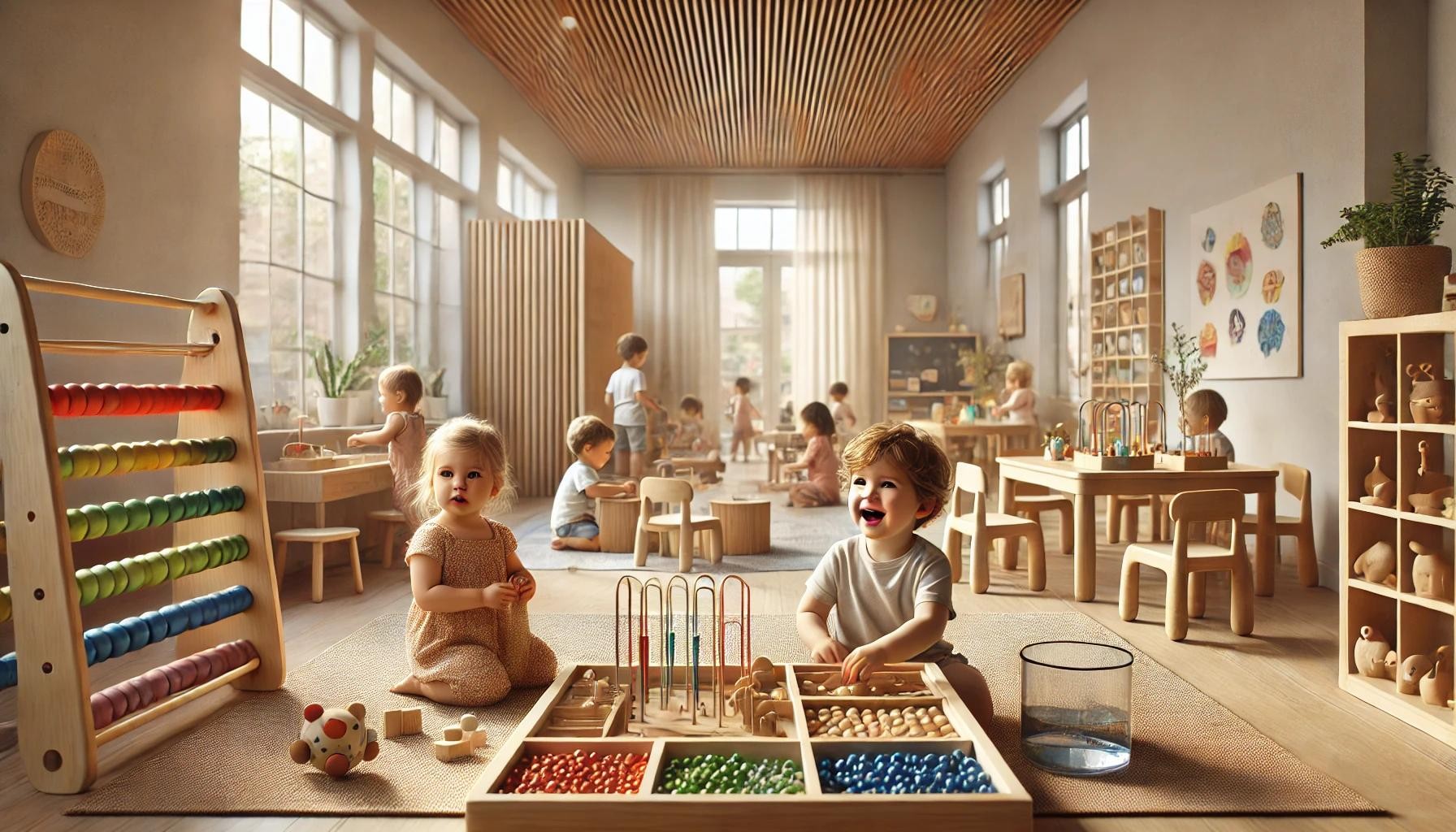As parents, we all want the best for our children. In their formative years, the choices we make regarding their...

Addressing Common Concerns About Enrolling in Montessori Sensory Workshops
What is a Montessori Sensory Workshop?
Montessori sensory workshops are hands-on learning experiences designed to help children explore and engage with the world through their senses. These workshops incorporate the Montessori philosophy, which emphasizes self-directed learning, independence, and the development of critical thinking skills. Sensory activities may involve exploring textures, sounds, smells, and more, all in an environment designed to spark curiosity and creativity.
Concern 1: “Will my child just be playing all day? How will they learn?”
It’s a common misconception that Montessori sensory workshops are purely play-focused without educational value. While the activities may look like play, they are intentionally designed to foster learning. For instance:
-
Practical Life Skills: Pouring water from one container to another might seem simple, but it helps develop motor skills, focus, and coordination.
-
Mathematical Foundations: Sorting objects by color or size introduces early concepts of categorization and sequencing.
-
Language Development: Describing textures or shapes builds vocabulary and communication skills.
In a Montessori setting, play is purposeful and guided to support developmental milestones.
Concern 2: “Is my child too young for structured activities?”
Montessori sensory workshops are tailored to meet children where they are developmentally. Toddlers and preschoolers thrive in environments that offer a balance of structure and freedom. For example:
-
The workshops provide a structured environment with clear goals but allow children to explore activities at their own pace.
-
Teachers are trained to observe each child’s interests and guide them gently rather than imposing strict schedules.
This approach ensures that even very young children feel comfortable and engaged without being overwhelmed.
Concern 3: “How will sensory activities benefit my child in the long term?”
Engaging the senses is crucial for early brain development. Sensory workshops contribute to long-term benefits such as:
-
Cognitive Growth: Activities that stimulate the senses help build neural connections, laying the foundation for problem-solving and critical thinking.
-
Emotional Regulation: By engaging in calming sensory activities, children learn to manage emotions and self-soothe.
-
Social Skills: Group settings encourage interaction, cooperation, and sharing.
These benefits extend far beyond the workshop, helping children navigate school and life with confidence.
Concern 4: “What if my child doesn’t seem interested?”
It’s normal for children to take time to adjust to new environments. Montessori workshops are designed to cater to diverse interests and learning styles. If your child seems hesitant:
-
Allow them to observe initially. Montessori emphasizes the importance of observation before participation.
-
Speak with the facilitators about your child’s unique preferences and personality. They can suggest activities that align with your child’s interests.
-
Be patient. Sometimes, children need time to warm up to new experiences.
Concern 5: “How safe is this environment for my toddler?”
Safety is a top priority in Montessori workshops. The materials and activities are specifically chosen to be age-appropriate and safe for young children. Additionally:
-
Classrooms are designed with child-sized furniture and tools to promote independence without risking injury.
-
Facilitators are trained to monitor children closely, ensuring a secure environment.
-
The ratio of children to adults is kept low to provide personalized attention and supervision.
Concern 6: “Will this interfere with my parenting style?”
Montessori sensory workshops are designed to complement, not replace, your parenting. In fact, many parents find that these workshops provide valuable insights into their child’s learning process. You can incorporate Montessori principles at home by:
-
Encouraging your child’s independence.
-
Offering sensory-rich activities, like playing with water, sand, or textured toys.
-
Providing a calm and organized environment for play and learning.
Workshops often encourage parent involvement, fostering collaboration between families and educators.
Final Thoughts
Deciding to enroll your child in a Montessori sensory workshop is a significant step toward nurturing their natural curiosity and development. By addressing these common concerns, it’s clear that these workshops provide a safe, enriching, and engaging environment tailored to young children’s unique needs.
If you’re still unsure, consider attending an open house or trial session to experience the Montessori approach firsthand. Seeing your child thrive in a sensory-rich environment may be all the reassurance you need.
Ultimately, Montessori sensory workshops can be a powerful tool to support your child’s growth, giving them the freedom to explore, learn, and build the skills they’ll carry throughout life.



Leave a comment